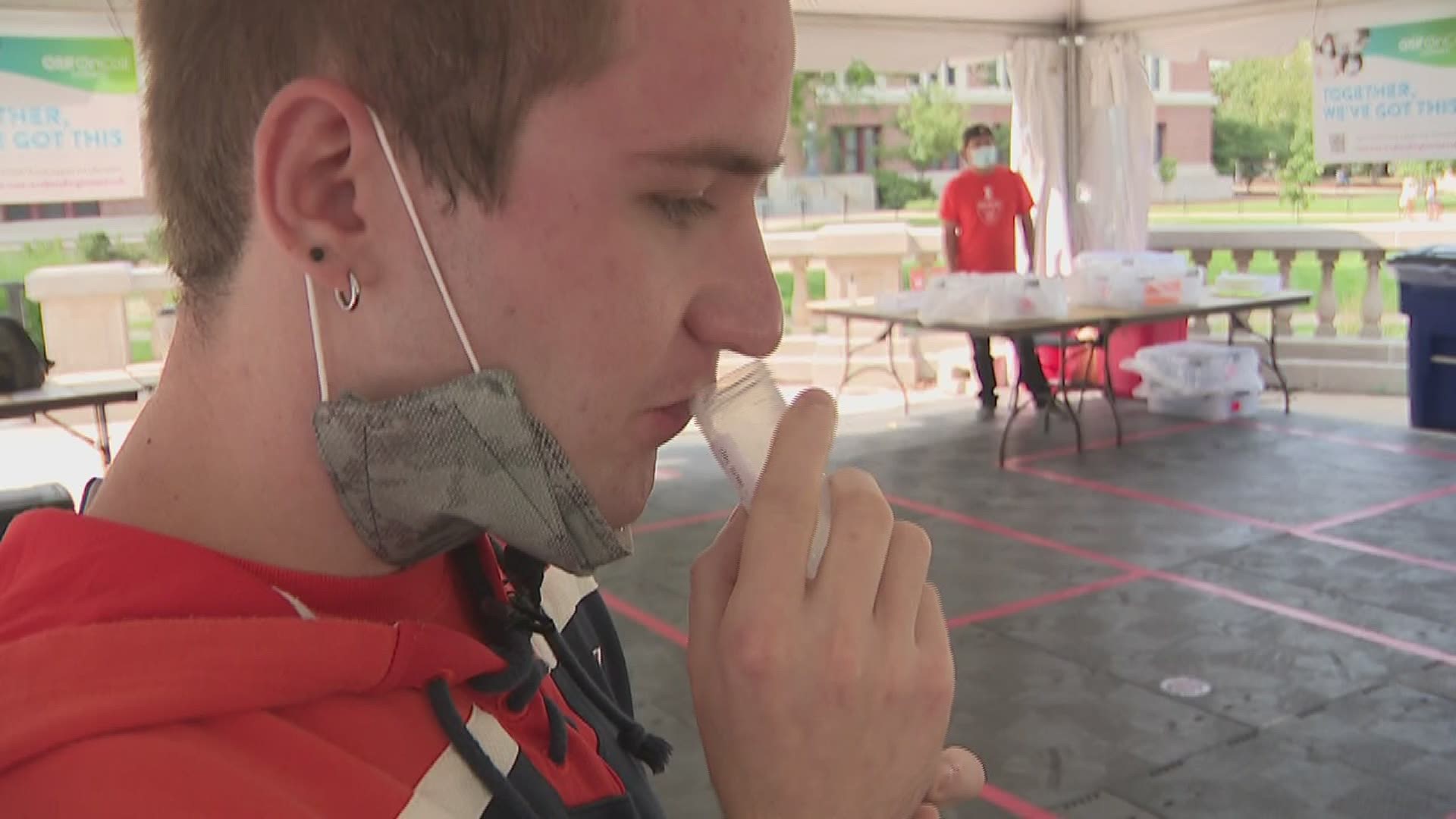CHAMPAIGN, Illinois — University of Illinois junior Kolten Conklen says he is glad to be back on campus this fall. "I knew at least we'd have a plan and at least we have a goal," said Conklen, who grew up in Sterling, Illinois.
That goal, amid the coronavirus pandemic, is to keep students like him safe and in the classroom as much as possible.
Most undergraduate students like Conklen are tested for COVID-19 twice a week, regardless of symptoms. In recent days, more than 10,000 Illini are regularly tested per day. On some days, that number represents more than a quarter of all tests conducted in the state of Illinois.
"They say necessity is the driver of innovation," said Dr. Martin Burke, a professor of chemistry and the associate dean for research at the Carle Illinois College of Medicine, who helped develop a breakthrough saliva-based testing platform.
The test developed at Illinois doesn't require an invasive nasal swab commonly used for other COVID-19 tests. Students are asked to spit into a tube, with results coming back in a matter of hours, not days.
"The key is the first step, which is to simply heat the tube. You actually boil it for about an hour. And this kills the virus, which helps protect the workers in the lab and also makes it much easier to operate at a large scale," Dr. Burke said.
But as vigorous as the university's testing program has been, administrators say it's only one piece of the puzzle, combined with mandatory mask-wearing, social distancing and an app -- which communicates test results and grants students access to university buildings.
"It's called Safer Illinois, it's free from the app store. You can download it and check it out," Dr. Burke said.
School-wide testing data is also available on a public dashboard. It shows a small spike in cases when students returned in late August. The university responded by requiring students to restrict social activities for a two-week period ending September 16th.
Case positivity dropped from over 2 percent to under 1 percent.
The University of Illinois has already rolled out the testing platform to its Chicago and Springfield campuses. Two organizations are now expanding the testing platform beyond the campus -- SHIELD Illinois to the entire state of Illinois, and SHIELD T3 to the rest of the United States and internationally.
"We think fast frequent testing combined with great community engagement can work," Dr. Burke said. "And many other communities could benefit."
Students like Conklen appear to be on board. "It's like we're participating in live, active research," he said.

